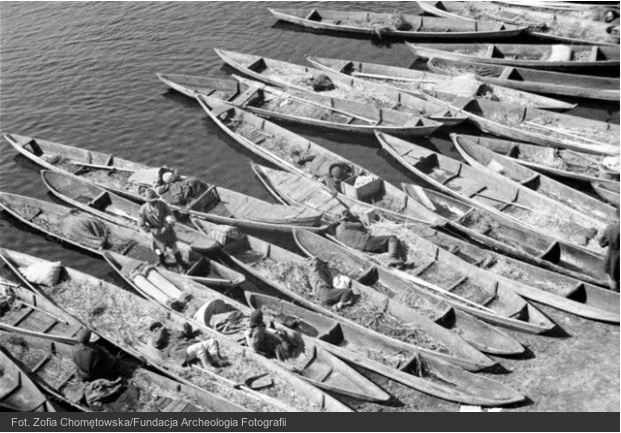I agree with Slavicaleks and I am pure Polish from Poland !
Agree with what? He is all over the place with his claims and he cannot focus on one single issue, the Wikipedia warrior.
Yes i am proud of my slavic heritage hence my username ;p
Yes, so are the suspended
alexmac, and also
alxmac and the
prussianwolf to boot. Identity crisis on the big scale. Your rambling, under various user names, about Poleszuks are completely incomprehensive and - as we Poles like to say - od Sasa do Lasa. No one is going to take you seriously if you do not focus and stay within bounds of logic and not pure emotions.
You claim that your Poleszuk grandmother was forced to go to Polish school, and that Poles banned/closed down local schools.
Well, there were never, ever Polesian schools, because there was never, ever Polesian written language - neither under Poland, nor Soviet Union, nor Belarus. How do you want to provide kids with formal education in a language, or rather a dialect, which has no written system (Cyrillic or Latin?), nor a grammar, nor comprehensive written dictionaries? So no, there were not Poleszuk schools ever. There was nothing to be banned or closed - stop spreading such blatant lies. Once again you have shown that you knowledge of local history, any history, is really shallow and superficial.
West Polesian can be considered as one of the Slavic microlanguages, in effect a transitional language between the Ukrainian and the Belarusian.
West Polesian is still mostly used in everyday speech, though attempts have been made in
1990s to develop a standard written language for the dialects.
At the end of 1980s, there was a minor campaign in Soviet Belarus for the creation of a separate "Polesian language" based on the dialects of Polesia launched by Belarusian philologist Mikola Shylyagovich and his associates. However, they received almost no support and the campaign eventually melted away.
en.wikipedia.org/wiki/Poleszuk [you own link, which you did not bother to read with comprehension]
In 1921 about 71% of Poleszuks were still illiterate. Given a choice of not learning how to write and read in any language whatsoever or learning Polish in a Polish school what would you elect? So stop complaining and living in you fantasy land.
The thirties brought significant reduction of illiteracy among Poleszuks. Yet, 25% of the children did not go to school. True, that brought some Polonization of Poleszuks: before the WWII their spoken language contained about 25% of Polish words - the percentage was up to 40%-50% among the youth.
Fact is that 62,5% inhabitants was not able to describe their nationality and their language, giving the name "local" in censuses. They also called their speech "simple" or "peasant" - as opposed to "lordly" or Polish speech. Those were the simplified Belarusian dialects, with big admixture of Polish, Russian and Ukrainian words.
I am not denying that Poleszuks indeed formed the majority in Polesia - as opposed to Ruthenians in Galicia. There were only 14.5% of Poles there, 10% Jews, 6.6% of nationality aware Belarusians and 4.8% Ukrainians. That makes 64% of Poleszuks, with 36% of all the others. With the exception of the southern belt, inhabited by Ukrainians, the allocation of roles was simple. Poles lived in Brześć and sparsely in smaller towns as officials, railway workers, soldiers of Pińsk river flotilla and landowners. Poleszuks and Belarusians were peasants and Jews monopolized trades, crafts and wood industry. Among the Catholics a group of several thousands of Polish petty nobility was visible, often speaking mixed Polish-Belarusian, but with their strong feeling of class consciousness.
That was the God forgotten country, with marshes taking 45% of the Province (21% in Brześć county, 65% in Kobryń county). Only 23% of the area was an arable land.
The greatest curiosity of Polesie was its almost natural economy. Peasants produced a little corn and potatoes (the lowest yields in the country) and cucumbers and cabbage - mainly for their own use. Pigs and poultry fed themselves in the meadows. Eggs were exchanged in the store for the salt and matches. Peasants built unicameral huts from wood, clay and straw, sewed clothes of linen and leather, made carts and agricultural implements; wooden plows were often in use. Nails and metal parts were often substituted by wooden parts. To buy crafts they had to go to "town" district, and such a trip, for example, to Pinsk, could take up to 15 hours one way.
Fish played the important role; but it was often caught by mass wastefully. Cattle grazed in marshy meadows, hence it was small and not productive. However, it was a measure of wealth hence it was grown in large numbers. Many Poleszuks had up to 40 cows, but many of them served only as producers of manure - the only fertilizer used there. The further away from the railroad the more natural the economy was. Here and there, not even matches were available; embers were kept in pots and when the fire expired new embers would be borrowed from the neighbors!
[partially translated from: docs6.chomikuj.pl/269683909,0,1,Polesie.pdf
Slavicaleks, I am not sure whether or not you are just making all your family history up, but you must stop your wikipedia warrioring. To really learn a bit about Polesie, check this page of "Towarzystwo Miłośników Polesia", The Association of Polesie Fans. They have there plenty of pre-war photographs, including those of Zofia Chomętowska, the forgotten artist.
polesie.polinfo.net/index.php?option=com_content&view=article&id=60&Itemid=46
It's in Polish, but photographs do not need translation. See for example, this series "Polesie Landscapes", polesie.polinfo.net/index.php?option=com_content&view=artic le&id=60&Itemid=46&limitstart=1

Zofia Chom�towska - Market on Pina River, 1930s
 PolishForums LIVE / Archives [3]
PolishForums LIVE / Archives [3]
